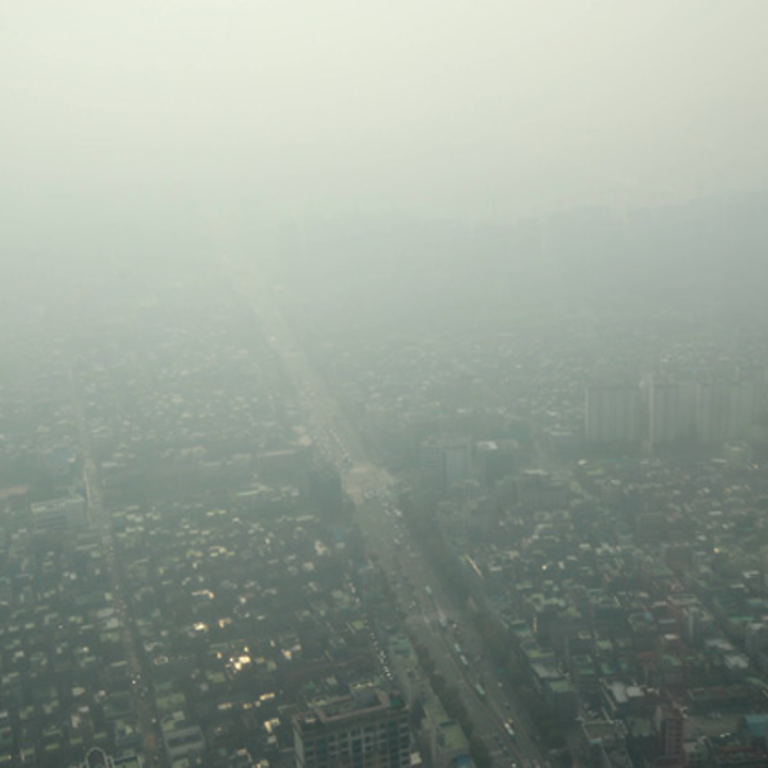
Police buses blamed for worsening air pollution in South Korea
Politician says police buses still run on diesel despite changes to Seoul’s other buses
By Kim Se-jeong
Cars, buses, and trucks are often blamed for fine dust that places public health in danger in South Korea. Last week, Particulate Matter 2.5 concentrations were unusually high and so the first thing the Seoul Metropolitan Government tried to do was removing cars from the roads.
What about police buses at rally sites and in front of public buildings?
According to Rep. Yoo Min-bong of the conservative Liberty Korea Party, all buses belonging to the Seoul Metropolitan Police Agency (SMPA) run on diesel, contributing to the worsening air pollution.
Once regarded as a “clean” fuel, diesel is no longer considered as such, and the national government shifted its policy to discourage drivers from purchasing diesel-run cars. The Seoul city government is particularly strict on policies toward old diesel-run vehicles, banning them from entering the city if they do not have pollution reduction devices.
Seoul also replaced all of its 6,971 buses with ones running on compressed natural gas (CNG) which don’t emit any particulate matter. CNG-run vehicles also emit three times less nitrogen oxide compounds than diesel-run vehicles, according to studies.
The SMPA said it was aware of the pollution issue but replacing all of its buses with CNG-run vehicles is easier said than done.
“The safety of the police force and other people is the biggest reason,” a police officer asking for anonymity said. “These buses are often dispatched to protest sites which sometimes get violent. Some protesters attempt to destroy the vehicles with fire and if the buses have CNG tanks, they will be much more susceptible to explosions.”
Another reason is affordability, according to the police. One CNG bus costs 100 million won (US$94,000), 20 per cent more than a diesel-run one. Purchasing 301 buses will cost the police 30.1 billion won.
The lack of filling stations is also a problem, the police cited. These stations are located near the eastern and western ends of the city, which is too far from the city center where the buses are most often dispatched.
As of 2016, 21 million vehicles were registered in Korea, meaning roughly every third person drives a car. Vehicles aren’t the biggest source of domestic fine dust, but one of the main sources, following coal-fired power plants and manufacturing facilities.
“We are aware of the new trend and environmental concerns, but it will still take time,” the officer said. “In the mean time, I hope people understand the situation we are in where security has a bigger priority than the environment.”
That is expected to create discord with the city government which put a strong priority on clean air. Last year, the Seoul city vowed to pressure the national government to get financial support for the replacement of police buses with electric ones.

